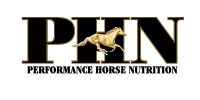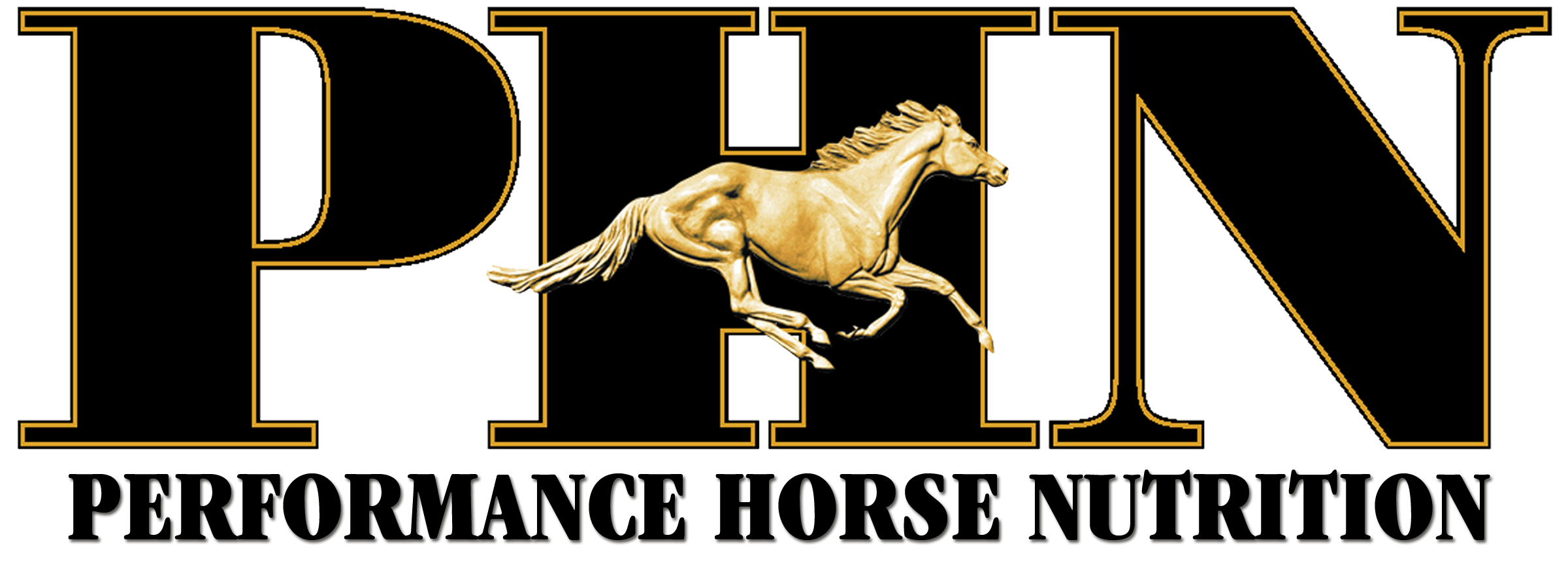FEEDING THE
SENIOR HORSE
May 2013

Written by Performance Horse Nutrition
The nutritional management of the senior horse is challenging as there are not set criteria that define “old age” or the “senior” horse. The nutrient requirements of senior horses differ from other classes of horses because of the changes in metabolic and digestive efficiency that accompany the aging process. The first step to good nutrition for the senior horse is determining if it is “senior”. Rather than rely strictly on age to determine if a horse is a “senior”, it is more important to determine if the horse is “nutritionally senior.” A horse that is “nutritionally senior” can no longer eat its same diet and maintain proper body condition. The combination of age, physiological status and physical signs of aging will determine if a horse is “nutritionally senior.” Some common physical signs of aging that require nutrition management are loss of weight and decrease in body condition, loss of muscle mass over the top line, sway backed appearance, and dental problems. Some senior horses also develop diseases such as Metabolic Syndrome, Cushing’s, and Kidney or Liver Dysfunction.
When it has been determined that a horse is indeed “nutritionally senior” each horse must be evaluated and fed as an individual. The main goals of feeding programs for senior horses should be to maintain an optimal body condition score of 5 to 6 and minimize the risks of nutritionally related disorders and diseases. Generally senior horses that are in good body condition are less active than their younger counterparts and only have maintenance energy requirements. However, if the horse has difficulty maintaining body weight then a higher caloric diet is needed.
Likewise, senior horses in good body condition have protein and other nutrient requirements that are similar to those of the maintenance animal. Horses that are underweight or have lost muscle mass require higher levels of protein and other nutrients. Overall digestibility in the senior is decreased therefore highly digestible and available nutrients are critical. Water intake is especially critical in senior horses in order to reduce constipation and impaction problems that are common in old horses. A large issue with older horses is dental problems. Horses that are missing teeth or have poor dentition must rely on alternate sources of pasture and hay as their ability to chew is limited.
Forage products such as hay cubes, hay pellets, and chopped forage can be used as substitute forage sources. Complete feeds that use high fiber by-products such as beet pulp and soybean hulls can be used as a quality forage source. These forage sources are often fed wet or in a “mash” or “gruel” form to minimize issues of choke associated with inability to properly chew. Commercial feeds specifically designed for the senior horse are typically easy to chew and highly digestible. These feeds are either pelleted or extruded and in severe cases can be soaked and made into a mash to facilitate easier consumption by the horse. Senior horses should be offered small meals frequently throughout the day and a single meal should not exceed 5lbs. The main point to remember when developing feeding programs for senior horses is that these animals should be treated as individual cases and optimized for the specific needs of each horse.
-Dr. Tania Cubitt

